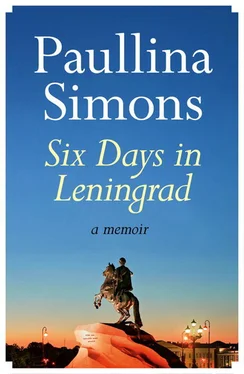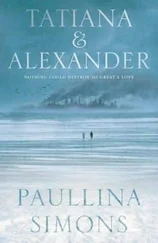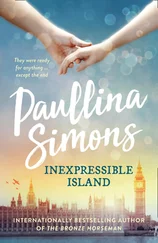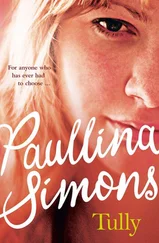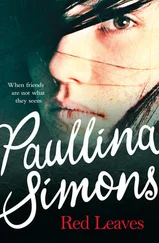When I showed them the pictures of my grandfather’s cucumber supports in the garden in Shepelevo, my grandmother said, “No, they’re not his. Yulia must have built them.”
“Yulia built them? What are you talking about? She didn’t build them. She doesn’t go there. They’re Dedushka’s.”
“That can’t be,” she said, shaking her head. “It was twenty years ago.” She looked at the pictures. “They can’t still be his.”
“Babushka!”
My father walked by, glancing at the picture said. “Of course they’re his. As if Yulia would build something.”
It was impossible for us all to believe that these lives, houses, mailboxes, blueberries, brown doors, hinges, concert halls, buses, buildings, cucumber supports could be the same. Our lives had changed so much, how could Russia be standing still? How could it have been so frozen in time, as if the VCR player remained on permanent pause — for me for twenty-five years, for my grandparents since the war that cleaved the world into before and after.
Looking at me dourly my grandmother said, “Why did you take those things you took from our dacha? I think you were wrong to take them. Like you stole them. Yulia might need them, and you took them without even asking.”
“Babushka!” I exclaimed. “What are you talking about? Yulia abandoned that house.”
“Well, maybe she will need Dedushka’s notebooks about when and how to plant vegetables.”
“His notebooks on weather patterns in 1978?”
“Maybe,” she said gruffly.
I had no response, except to shake my head in amazement. I could see she was upset at me. I was upset at myself. I said nothing.
“Listen, Plinka,” my grandfather said. “This relates directly to your trip to Shepelevo. When I was in the army during The War, I went to visit my brother Semyon who was serving on the Volkhov front as an aviation engineer.”
“Where were you?”
“On the western front,” he said. “When I came to his airstrip, I had a little trouble getting in to see him because the border patrol kept me for a long time near the checkpoint, making sure my passport and credentials were valid.”
“How long?”
“How long what?”
“How long did they detain you?”
“I don’t know. It seemed like two days. It was probably two hours. Apparently an airplane had recently been stolen from the airport hangar by an army man who wanted to eat. If you were a pilot with a plane, the army gave you more food than if you were just a soldier. So the guy stole a plane to barter for some food, and because of that I was held up at checkpoint.”
“The ironic idiotic Soviet thing,” Dedushka continued, “and this is the part that relates directly to your Shepelevo experience, was that through this airport ran an unpaved road by which all the locals walked on foot to the fields and forests to pick berries. Paullina, the road ran right through the airport and they walked on this road by the dozens and no one stopped them. But at the entrance to the airport, I was stopped for several hours.”
“Deda, how far away from the checkpoint was this road the people walked on?”
“Oh, I don’t know,” he said. “Five meters.”
I laughed.
“That’s Russia for you,” said my grandfather.
During dinner it became quickly obvious to me that my father had already told his stories about our trip; there wasn’t much for me to do, except pass my Russia pictures around and clean up. Everyone asked me what I thought. Did I think St. Petersburg was beautiful? Yes, I said.
My father had told them all the stories. The Romanovs, the Diorama, the metal doors of the toilet, the caviar I ate every morning.
It was a mixed relief for me not to have to recount to Kevin, to my grandparents, to my sister, to my mother, who didn’t want to hear anything at all, things I couldn’t put in perspective for anyone — most of all me.
They didn’t want my perspective, what they wanted was for things to go back to just the way they were before I had left, peaceful, untroubled, unexamined, nice, nice, nice . While all I felt was shame. Profound shame and regret and fear. Put that into perspective.
“Did we have a good trip, eh, Paullina? Did we?” my father asked.
What could I say to him?
“We did, Papa,” I said. “We did.”
He wasn’t writing a book. But he did tell the stories. That’s what life’s twists represented to my father. Another good story to be told over vodka and herring and potatoes and cigarettes with a raptly listening and appreciatively laughing audience. He barely could get through the experience before he would start forming the story in his head. Sometimes in the middle of the experience he was already thinking how he was going to tell it so that it would be the funniest, the cleverest, the most touching story he could create.
Feelings, those were extra. Actual pain, sentimentality, nostalgia, that was all extra. And it wasn’t what he was interested in. He was not interested in his own feelings. He was interested in ours. He wanted us to feel something when he told his story to us. Privately, he may have been tremendously affected. I know he was. But publicly, he simply made every facet of his life a story and then waited for us to react.
My father affected the people who knew him. All his friends, all his colleagues felt like he was the brightest, the funniest storyteller they knew. His skills as a storyteller were legendary.
Because he was also a romantic, during our first family dinner he told the story of our coming back from the Russian restaurant Sankt Peterburg and hearing the street jazz musician play “Speak Softly Love” from The Godfather .
I waited for him to finish. “That’s so interesting, Papa, because what I also remember from that evening is some homeless drunk striking up a friendship with you and then following us down the lovely Griboyedov canal, reciting a Pasternak poem over and over.”
My father shook his head. “You would remember that, wouldn’t you?” We laughed.
Sometime during dinner, I stood, raising my vodka glass and was interrupted by my Russian family seven times before my mother said, “What do you want to say, Plinka?”
And my father, knowing already, said, “That she likes me. That she likes me very much.”
“I want to drink to my father,” I began.
My mother said, “What about me? What about me?”
“Alla, could you wait?” my father said.
“What about drinking to me?” she repeated. “Who gave birth to you? Who taught you how to read?”
“Who got us out of Russia?” I quietly asked.
My mother sneered bitterly. I raised my shot glass higher and said, sighing, “But first , let us drink to my mother. Had she not given birth to me, I would not be standing here tonight.”
“That’s right,” she said, nodding fiercely. “That’s exactly right. You don’t even know how right you are.”
With abortion being the primary form of contraception in Communist Russia, the average Soviet woman had anywhere from four to seven abortions in her lifetime. “I know, Mama,” I said. “I know how right I am.”
We drank. I poured myself another. “Now I’d like to drink to my father.” My mother managed to keep quiet. “When we were in Leningrad, sometimes I looked at Papa,” I began, “and wondered how in the world did he ever get us out of Russia in 1973? Yet, he did. He learned English in prison because he knew with absolute certainty that without English we would have no hope. He wanted to go to America, he had known that for a long time. If we came here, we might fail, but without his English, we would fail for sure. We’d be part-time hot dog vendors on the streets of Brighton Beach, or driving cabs, complaining about the government not taking better care of us. Furthermore,” I continued but my voice did break, “I raise this glass to him, because if not for him, we would be still back in Russia, living the life of Alla and Viktor, of Anatoly and Ellie, of Radik and Lida. We would be there in a dead-end life, me and Liza. Papa gave us our future. With his English, he pulled us out of Russia,” I said, turning to my sister. “Tonight, I drink to him for giving Liza and me our life.”
Читать дальше
